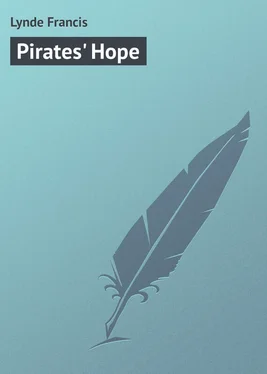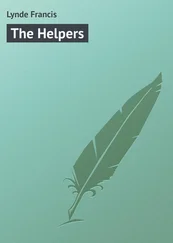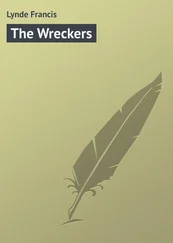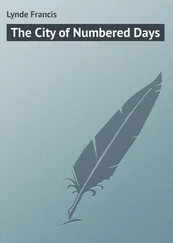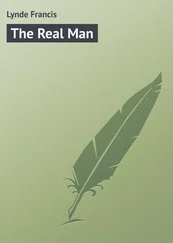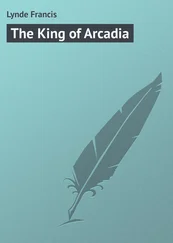Francis Lynde - Pirates' Hope
Здесь есть возможность читать онлайн «Francis Lynde - Pirates' Hope» — ознакомительный отрывок электронной книги совершенно бесплатно, а после прочтения отрывка купить полную версию. В некоторых случаях можно слушать аудио, скачать через торрент в формате fb2 и присутствует краткое содержание. Издательство: Иностранный паблик, Жанр: foreign_prose, на английском языке. Описание произведения, (предисловие) а так же отзывы посетителей доступны на портале библиотеки ЛибКат.
- Название:Pirates' Hope
- Автор:
- Издательство:Иностранный паблик
- Жанр:
- Год:неизвестен
- ISBN:нет данных
- Рейтинг книги:4 / 5. Голосов: 1
-
Избранное:Добавить в избранное
- Отзывы:
-
Ваша оценка:
- 80
- 1
- 2
- 3
- 4
- 5
Pirates' Hope: краткое содержание, описание и аннотация
Предлагаем к чтению аннотацию, описание, краткое содержание или предисловие (зависит от того, что написал сам автор книги «Pirates' Hope»). Если вы не нашли необходимую информацию о книге — напишите в комментариях, мы постараемся отыскать её.
Pirates' Hope — читать онлайн ознакомительный отрывок
Ниже представлен текст книги, разбитый по страницам. Система сохранения места последней прочитанной страницы, позволяет с удобством читать онлайн бесплатно книгу «Pirates' Hope», без необходимости каждый раз заново искать на чём Вы остановились. Поставьте закладку, и сможете в любой момент перейти на страницу, на которой закончили чтение.
Интервал:
Закладка:
"It is striking five bells in the first night watch – otherwise, or landsman-wise, half-past ten o'clock."
"Good! – excellent good. Let's turn in, so we can turn out bright and early for our first shot at the blue water. What do you say?"
I said the required word, and we went below to our respective staterooms. The next morning when I turned out and drew aside the curtain shading the stateroom port light, the sun was shining brightly, and for a horizon there were only the tumbling wavelets of the Gulf of Mexico.
III
THE MAJOR – AND OTHERS
The first morning in blue water developed the fact that breakfast on the Andromeda was destined to be a broken meal. In the white-lacquered dining-saloon, only three members of the ship's company, Major Terwilliger, Madeleine Barclay's father, and Professor Sanford were at table, though Van Dyck and Billy Grisdale had been still earlier, had already breakfasted and had gone on deck.
As I took my place, the major, affecting the bluff heartiness which was merely a mask for an ease-loving, self-centered habit which never for a moment lost sight of the creature comforts, was trying, quite ineffectually, to draw Sanford into a discussion of the merits and demerits of certain French liqueurs – a subject upon which the clean-living, abstemious professor of mathematics was as poorly informed as any anchorite of the desert.
"Vermuth, now; a dash of vermuth in your morning bitters," the major expatiated; "there's nothing like it for an appetiser. I'm not saying anything against the modern cocktail, properly compounded; it has its place. But for a morning eye-opener it is crude. Believe me, a Frenchman knows the meaning of the word apéritif much better than we do."
"Yes?" said the professor, with a palpable effort to galvanize an interest which he was evidently far from feeling.
"Quite so," declared the major; after which he proceeded to enlarge upon American backwardness in the matter of picking and choosing among the potables, inveighing with all the warmth of a past master in the art of good living against the barbarism of taking one's liquor raw.
While the major was giving his alcoholic homily, and not omitting, meanwhile, to keep his plate well supplied with the crispest bits of bacon and the hottest of the rolls, I had an opportunity to observe the silent man whose place was opposite my own. Holly Barclay had changed greatly in the three years which had elapsed since I had last seen him in New York. I never knew – I do not yet know – what particular form his dissipation took, but it had left its indubitable record in the haggard face, the deep-sunken eyes, and in the womanish hands which trembled a bit in spite of an evident effort to hold them steady.
Fragmentary gossip of former days had said that Holly Barclay's bane was women; other whispers had it that it was the gaming table; still others that it was the larger gaming table of the Street. Whatever it was, it had apparently left him a rather ghastly wreck of a man; a prey, not to remorse, perhaps, but certainly to fear. And with the fear in the deep-set eyes there was a hint of childish petulance; the irritable humor of a man who has fought a losing battle with life and expects to be waited upon and coddled as a reward for his defeat and humiliation.
It was a relief to turn from this haggard wreck, and from the sham-hearty major, to the mild-eyed professor. Sanford I had known in the university, and a less self-conscious or more lovable man never lived. Deeply immersed in the natural sciences, which were his hobby, and absent-minded at times to a degree that put to shame the best efforts of the college-professor-joke makers, he was nevertheless the most human of men; a faculty member whose door was always hospitably open to the homesick Freshman, and whose influence for good in the lush field of the college campus was second only to that of his plain-featured, motherly wife.
"Ah, yes," he was saying, in answer to the major's eulogy of chartreuse as a cordial, "it is said to be a distillation from the leaves of Urtica pilulifera , the much-abused nettle, I believe. Those old Alpine monks had a wonderful knowledge of the scanty flora of the high altitudes where they built their monasteries. Which reminds me: I hope Bonteck will give us an opportunity to study some of the remarkable plant forms peculiar to the tropics before we return. It would be most enlightening to a stay-at-home like myself."
The major's facial expression was that of a person who has been basely betrayed into casting pearls before swine. That any one could be so benighted as to associate a divine cordial only with the crude materials out of which it might be made was quite beyond his powers of comprehension.
"Hum," he muttered, "I've always understood that the process of chartreuse-making was a secret that was most jealously guarded." And with that he let the pearl casting stop abruptly.
Here was a striking example, one would say, of the ill-assortment of our mixed ship's company manifesting itself at the introductory breakfast at sea. Throughout the meal Barclay said nothing to any of us. His few remarks were addressed to the serving steward, and they were all in the nature of complaints. His coffee was too weak, the bacon was too crisp, the cold meats were underdone. What with the gourmet appetite of the major, and Barclay's apparent lack of any appetite at all, the broken meal was anything but a feast of reason and a flow of soul, and I was glad to break away to the freedom of the decks.
Finding the after-deck untenanted, I strolled forward. The Andromeda was loafing along over a sea as calm as a mill-pond, and her course, as nearly as I could guess it from the position of the sun, was a little to the east of south. Van Dyck and Billy Grisdale were on the bridge, and one of the foreign-looking sailormen had the wheel. On the main-deck forward three members of the crew were swabbing down, and two others were polishing brass. As I paused at the rail in the shadow of the bridge overhang, Goff, the sailing-master, came stumping along. Though no one had as yet told me that he was a Gloucesterman, I took a shot at it.
"This is not much like cracking on with a schooner for the Banks, is it, Captain?" was the form the shot took; and the grizzled veteran of the sea stopped and looked me over with an eye militantly appraisive.
"What you know about the Banks?" he inquired hostilely.
"Little enough," I admitted. "One trip, made when I was a boy, in the schooner Maria Ann , of Gloucester, Captain Standifer."
"I want to know!" he said, thawing perceptibly. "Old Maria Ann's afloat yit, but Standifer's gone; run down in a dory in a fog." Then, lowering his voice: "You don't belong to this New York clanjamfry, do ye?"
"Not strictly speaking; I signed on in New Orleans."
"Know these waters putty middlin' well?"
"I've sailed them a few times."
"Friend o' Cap'n Van Dyck's, I cal'late?"
"As good a friend as he has on earth, I hope."
At this the old sea dog thrust an arm in mine and led me aft until we were out of earshot from the bridge.
"What d' ye know about this here winter cruise?" He fired the question at me belligerently.
"About its course and destination? Little or much, as you choose to put it. What should I know?"
He paid no attention to my question.
"Cap'n Van Dyck's all right, only he's too dum hardheaded," he confided. "Picked up his 'tween-decks lackeys in New York an' Havana. Don't like the looks o' some on 'em. If you're a friend of the Cap'n's, you keep a weather eye on that slick lookin' yaller boy that waits on table in the dinin'-saloon."
"How am I to keep an eye on him?" I asked.
"When you're eatin' with the folks, you keep 'em from talkin' about things that yaller boy hadn't ought to hear," he bit out, and with that he left me.
Читать дальшеИнтервал:
Закладка:
Похожие книги на «Pirates' Hope»
Представляем Вашему вниманию похожие книги на «Pirates' Hope» списком для выбора. Мы отобрали схожую по названию и смыслу литературу в надежде предоставить читателям больше вариантов отыскать новые, интересные, ещё непрочитанные произведения.
Обсуждение, отзывы о книге «Pirates' Hope» и просто собственные мнения читателей. Оставьте ваши комментарии, напишите, что Вы думаете о произведении, его смысле или главных героях. Укажите что конкретно понравилось, а что нет, и почему Вы так считаете.
